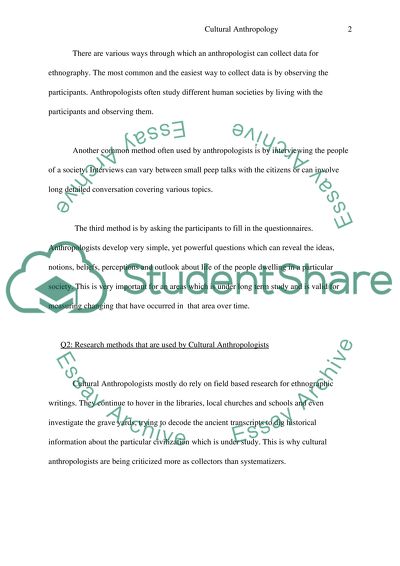Cite this document
(Research Methods Used by Cultural Anthropologists Assignment, n.d.)
Research Methods Used by Cultural Anthropologists Assignment. Retrieved from https://studentshare.org/anthropology/1559085-cultural-anthropology
Research Methods Used by Cultural Anthropologists Assignment. Retrieved from https://studentshare.org/anthropology/1559085-cultural-anthropology
(Research Methods Used by Cultural Anthropologists Assignment)
Research Methods Used by Cultural Anthropologists Assignment. https://studentshare.org/anthropology/1559085-cultural-anthropology.
Research Methods Used by Cultural Anthropologists Assignment. https://studentshare.org/anthropology/1559085-cultural-anthropology.
“Research Methods Used by Cultural Anthropologists Assignment”. https://studentshare.org/anthropology/1559085-cultural-anthropology.


